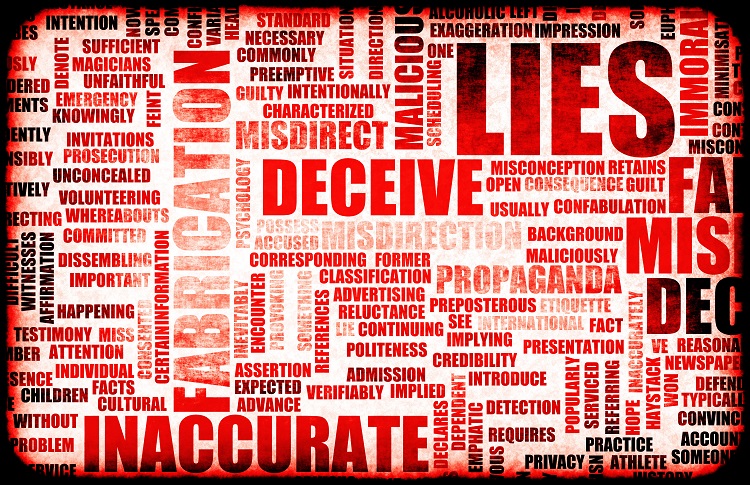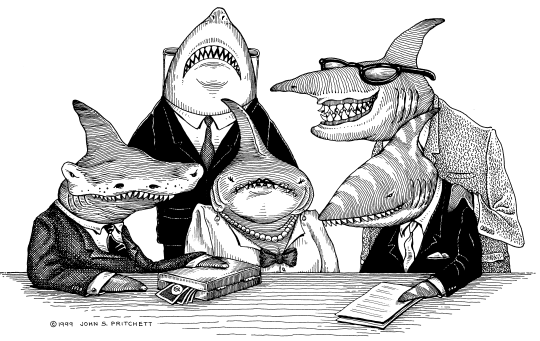Why Lawyers Become Bad Leaders
Or…Stop putting lawyers into political leadership, Congress, Senate, Presidency!

Lawyers rank low in terms of perception as being honest and ethical, yet make up a majority of US presidents and half of Congress. Does the study of the law result in bad leaders?
There is also a mismatch between the traits associated with leaders and those associated with lawyers. Although what constitutes effective leadership depends on context, certain qualities are rated as important across an array of situations. The best-documented characteristics cluster in five categories: vision, values (integrity, honesty, an ethic of service), personal skills (self-awareness, self-control), interpersonal skills (social awareness, empathy, persuasion), and technical competence (knowledge, preparation, judgment).
Not all of those qualities are characteristic of lawyers. For example, they tend to be above average in their skepticism, competitiveness, autonomy, sense of urgency, and orientation to achievement. Skepticism, the tendency to be argumentative, cynical, and judgmental, can get in the way of what President George H.W. Bush famously dismissed as the ”vision thing.” The need to ”get things done” urgently can lead to impatience, intolerance, and a failure to listen. Competitiveness and desires for autonomy and achievement can make lawyers self-absorbed, controlling, and combative.
Lawyers also rank lower than the general population in interpersonal sensitivity and resilience—their difficulty in accepting criticism. Lacking ”soft” interpersonal skills, they tend to devalue them and see no reason to acquire them.
Another problem arises from what researchers call the ”paradox of power.” Individuals reach top positions because of a need for personal achievement, so they often don’t focus on helping others achieve. If left unchecked, the ambition, self-confidence, and self-centeredness that often propel lawyers to leadership roles may sabotage their performance once they get there.

If you're a lawyer, you've heard it before: Americans don't much like you!
A recent Gallup poll finds that less than a fifth of Americans rate lawyers highly or very highly
in honesty and ethical standards, above members of Congress and car salesmen. According to a Pew Research Center poll, honesty is the most important leadership trait.
Although honesty is not a characteristic commonly associated with lawyers, Americans place lawyers in leadership roles in much higher percentages than other countries do. According to one study, only one nation, Colombia, has a higher share of lawyers in the national legislature. The legal profession has supplied a majority of U.S. presidents, and in recent decades, almost half of the members of Congress. Although they account for just 0.4 percent of the population, lawyers are well represented as governors, state legislators, judges, prosecutors, and heads of corporate, government, and nonprofit organizations.
What explains that paradox?
The distinctive influence of American lawyers reflects several factors. First, the centrality of law in American culture. The country's longstanding tendency to frame questions of social policy and morality in legal terms has elevated lawyers to positions of authority. As de Tocqueville famously noted, "In America there are no nobles or literary men, and the people is apt to mistrust the wealthy; lawyers consequently form the highest political class and the most cultivated circle of society."
Because lawyers functioned, in de Tocqueville's words, as the "American aristocracy," many upwardly mobile individuals who aspired to public influence chose law as their career. As law became associated with positions of influence, those who were interested in leadership increasingly saw it as the occupation of choice. President Woodrow Wilson captured prevailing wisdom when he noted: "The profession I chose was politics; the profession I entered was the law. I entered one because I thought it would lead to the other."
Law and politics are what researchers call "convergent professions" because they require similar functions; skills in investigation, drafting, procedure, and oral advocacy work to the advantage of lawyers who seek public office.
It is ironic, then, that the occupation most responsible for producing America's leaders has focused so little attention on that role.
Rarely have lawyers received training for governance. Although leadership development is now a $60-billion worldwide industry, it is largely missing in legal education. Even the minority of law schools that include fostering leadership among their objectives rarely offer courses in the subject. Only a fifth of large law firms have formal leadership-development programs. An Amazon search yields some 74,000 leadership books, but only a handful focusing on lawyers.
Two reasons the occupation that produces so many of the nation's leaders has done so little to prepare them may be that the field of leadership studies has only recently emerged, and that its reputation has been tarnished by pop publications. "Leadership lite" includes classics such as Leadership Secrets of Attila the Hun and Toy Box
Leadership: Leadership Lessons From the Toys You Loved as a Child.
Another obstacle to preparing leaders is the assumption that great ones are born, not made. Yet contemporary research suggests that most leadership skills are acquired. And decades of experience with leadership development indicates that its major capabilities can be learned. In effect, as James M. Kouzes and Barry Z. Posner note in The Truth About Leadership, "the best leaders are the best learners."
There is also a mismatch between the traits associated with leaders and those associated with lawyers. Although what constitutes effective leadership depends on context, certain qualities are rated as important across an array of situations. The best-documented characteristics cluster in five categories: vision, values (integrity, honesty, an ethic of service), personal skills (self- awareness, self-control), interpersonal skills (social awareness, empathy, persuasion), and technical competence (knowledge, preparation, judgment).
Not all of those qualities are characteristic of lawyers. For example, they tend to be above average in their skepticism, competitiveness, autonomy, sense of urgency, and orientation to achievement. Skepticism, the tendency to be argumentative, cynical, and judgmental, can get in the way of what President George H.W. Bush famously dismissed as the "vision thing." The need to "get things done" urgently can lead to impatience, intolerance, and a failure to listen. Competitiveness and desires for autonomy and achievement can make lawyers self-absorbed, controlling, and combative.
Lawyers also rank lower than the general population in interpersonal sensitivity and resilience— their difficulty in accepting criticism. Lacking "soft" interpersonal skills, they tend to devalue them and see no reason to acquire them.
Another problem arises from what researchers call the "paradox of power." Individuals reach top positions because of a need for personal achievement, so they often don't focus on helping others achieve. If left unchecked, the ambition, self-confidence, and self-centeredness that often propel lawyers to leadership roles may sabotage their performance once they get there.
A case study in the limitations of lawyers as leaders involves the role of Ted Olson and David Boies in bringing the federal case challenging California's ban on same-sex marriages. The case arose after California voters narrowly passed Proposition 8, amending the state Constitution to limit marriage to unions between a man and a woman. Olson and Boies, two of the nation's most accomplished lawyers, were hired by a political strategist and a Hollywood producer to challenge Prop 8. Boies and Olson knew that leaders of gay-rights organizations were opposed to a federal challenge but did not consult them before filing suit.
In justifying their decision to proceed, Olson told The New Yorker, "There are millions of people in this country who would like to be married—in California, in Arkansas, wherever. Some couple is going to go to some lawyer, and that lawyer is going to bring the case. And that case could be the case that goes to the Supreme Court. So, if there's going to be a case, let it be us. Because we will staff it—we've got 15, 20 lawyers working on this case, and we have the resources to do it, and we have the experience in the Supreme Court."
It was hardly a disinterested decision. Olson and Boies clearly had something to gain from being lead counsel in a case of such prominence. Many gay-rights leaders were furious, and a joint statement by the American Civil Liberties Union and eight prominent gay-rights organizations condemned the lawsuit. The odds of success were weak because the "Supreme Court typically does not get too far ahead of either public opinion or the law in the majority of states," the statement said. "We lost the right to marry in California at the ballot box. That's where we need to win it back."
The controversy over Boies and Olson's actions continued once the federal trial judge in the case issued an order specifying topics for the parties to consider. He identified a wide range of matters in which gay-rights groups had expertise, and three of them attempted to join the lawsuit as interveners. Boies and Olson blocked those efforts, in order to retain exclusive control over the litigation.
They got lucky. The sympathetic trial judge issued a factually well-supported ruling that California's ban on same-sex marriage violated the U.S. Constitution. Then California's governor and attorney general declined to appeal the ruling, leaving the defense of Prop 8 in the hands of activists who had put it on the ballot. That paved the way for the Supreme Court to rule that the
activists lacked standing to challenge the lower court's ruling. The result was to let the decision overturning Prop 8 stand, and to grant same-sex couples the right to marry in California, while avoiding a decision on the constitutional question.
Although the outcome was a happy one, there is much to dislike about the process by which it was achieved.
Boies and Olson pursued a high-risk strategy against the advice of groups that had the greatest expertise and stake in the outcome. Most observers believe that a low-risk strategy of challenging Prop 8 at the ballot box would have been successful, as polls suggested that California voters had changed their views on the ban. Such a strategy would have exposed the gay-rights movement to less risk of an adverse Supreme Court precedent while accomplishing the same result.
That is not to deny the accomplishments of Boies and Olson as litigators, the advantages of having a prominent conservative like Olson supporting gay marriage, or the social commitments that underpinned their actions. But it is to underscore the difference between effective lawyers and effective leaders.
A quality of successful leadership is the capacity to work collaboratively. The most-effective leaders are those who can see past their own ambitions and desire for limelight. In Peter Drucker's phrase, accomplished leaders "think and say 'we.'" Enduring legacies are left by those who transcend personal needs and consult widely in pursuit of common values.
Deborah L. Rhode is a professor of law at Stanford University and director of its Center on the Legal Profession. Her most recent book, Lawyers as Leaders, was published by Oxford University Press.
How Entrepreneurs and Lawyers Think Differently
David Http://markethive.com/david-ogden



